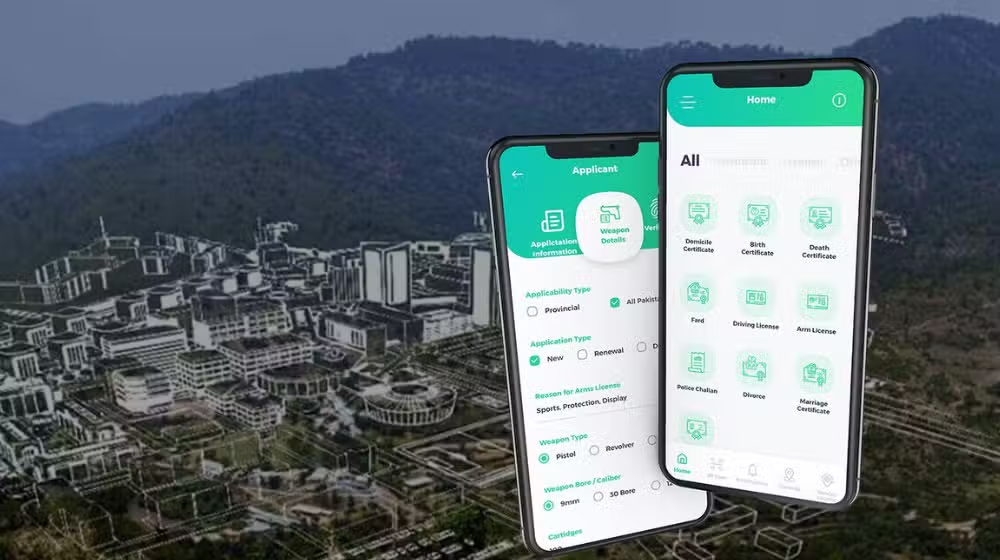Major Step Toward E-Governance in Public Services
In a significant development aimed at enhancing transparency, efficiency, and public convenience, the Khyber Pakhtunkhwa (KP) Home and Tribal Affairs Department has fully automated its Arms License Section. This digitization initiative, implemented under the provincial government’s broader e-governance strategy, marks a milestone in modernizing administrative processes and improving public service delivery in the province.
The automation of the arms license section is part of a wider effort by the KP government to streamline bureaucratic operations and reduce opportunities for corruption and delays. By replacing manual systems with an integrated digital platform, the department aims to ensure secure, accessible, and tamper-proof licensing procedures.
Online Application and Verification System Launched
As part of the automation process, citizens can now apply for new arms licenses, renew existing ones, or transfer ownership through a dedicated online portal. The digital platform allows applicants to fill out forms, upload necessary documentation, and track the progress of their application in real-time. Additionally, the system integrates with the National Database and Registration Authority (NADRA) and other verification bodies to ensure authenticity and prevent fraudulent entries.
Previously, the process of acquiring or renewing arms licenses was marred by long wait times, extensive paperwork, and frequent complaints of mismanagement. With the new system in place, the department has significantly reduced processing times, improved user experience, and minimized human intervention in critical stages.
Biometric and QR Code Integration for Enhanced Security
To further bolster the system’s integrity, biometric verification has been made mandatory for all applicants. Fingerprint matching and photo identification are now cross-checked with NADRA’s database before a license is issued. The new arms licenses will also include QR codes that can be scanned by law enforcement officers to instantly verify authenticity and status in the field.
This technological integration serves a dual purpose — deterring the use of forged licenses and facilitating more efficient enforcement and compliance checks. The QR code and biometric features make the licenses nearly impossible to replicate, thus strengthening the province’s efforts against illegal arms possession.
Training and Capacity Building for Departmental Staff
To ensure smooth implementation and long-term sustainability of the automated system, the KP Home Department has conducted a series of training sessions for its staff. Employees from across the province have been introduced to the new digital tools, software platforms, and standard operating procedures necessary for managing the automated arms license section.
The department is also establishing a dedicated technical support unit to assist with troubleshooting, manage updates to the system, and provide continued user guidance to both staff and the public. This approach reflects a commitment to institutionalizing the digital transformation rather than treating it as a one-time project.
Public Response and Stakeholder Feedback
Initial feedback from the public has been largely positive. Citizens who have used the system report a more convenient and time-saving experience compared to the traditional manual process. The option to apply from home, avoid unnecessary visits to government offices, and receive timely updates via SMS or email has been especially appreciated in rural areas where travel to administrative centers can be time-consuming.
Civil society organizations and governance watchdogs have also welcomed the move. They note that automation significantly reduces opportunities for bribery and red tape, fostering greater trust in public institutions. However, some concerns remain about accessibility for those who lack internet access or digital literacy, prompting calls for mobile service kiosks and public assistance desks to be established.
Alignment with National Digital Governance Vision
The KP Home Department’s automation initiative aligns closely with Pakistan’s broader vision of digital governance and public sector reform. Under the federal government’s “Digital Pakistan” agenda, provinces are encouraged to digitize citizen-facing services to enhance transparency, accountability, and efficiency.
By automating its arms license section, Khyber Pakhtunkhwa has taken a concrete step in this direction, serving as a model for other provinces to emulate. The successful implementation could encourage further digital reforms in other departments, such as vehicle registration, land records, and police reporting systems.
